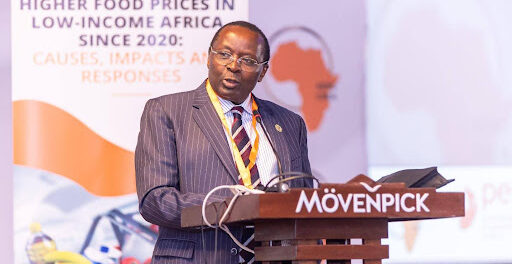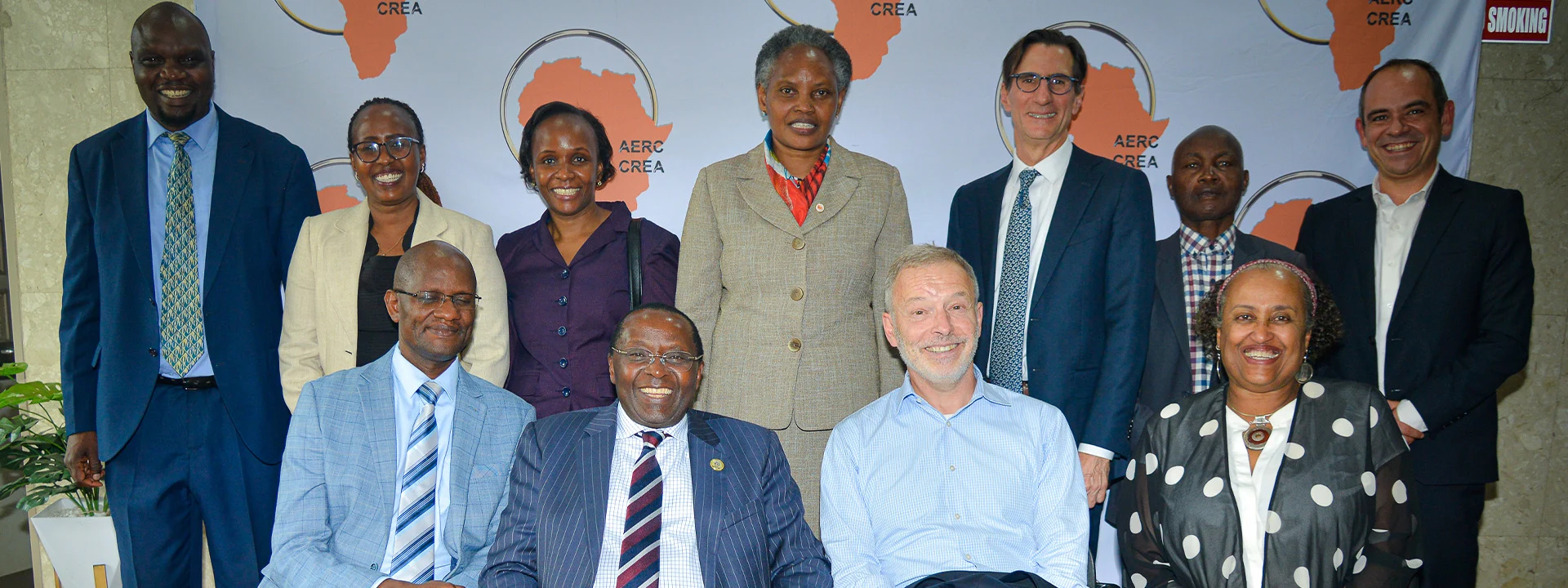

AERC Leads Dialogue on Africa’s Food Price Crisis at SPARC & Jameel Observatory Conference
October 6, 2025Nairobi, 2nd October 2025: Food prices across Africa have surged since 2020, leaving millions of households struggling to afford even the most basic meals. Although global prices have gradually stabilized, domestic prices in many African countries remain stubbornly high — deepening poverty, eroding household resilience, and threatening social stability.
Against this backdrop, the African Economic Research Consortium (AERC), in collaboration with the Partnership for Economic Policy (PEP), the Overseas Development Institute London (ODI London), the Economic Research Forum (ERF), and the Supporting Pastoralism and Agriculture in Recurrent and Protracted Crises (SPARC) programme, convened a high-level side event during the SPARC & Jameel Observatory Joint Conference in Nairobi. Supported by Global Affairs Canada (GAC) and the International Development Research Centre (IDRC), the session brought together researchers, policymakers, and development partners to explore the causes, consequences, and policy responses to Africa’s escalating food price crisis.
“Africa’s food systems are caught in what we call the ‘ratchet effect’: prices rise sharply during crises but rarely return to pre-crisis levels. Following the sharp rise in food prices globally during the COVID era, food prices in Africa tend to be rigid downwards many years after pandemic,” observed Prof. Victor Murinde, Executive Director of the AERC. “Our research sought to unpack why food prices in Africa have remained inflexible downwards, the impact on households, and what can be done to strengthen resilience and safeguard food security across the continent.”
Complex Shocks, Enduring Impacts
Discussions highlighted the complex interplay of external and domestic shocks — from the COVID-19 pandemic and the Russia–Ukraine conflict to prolonged droughts, inflation, and internal conflict — that have severely disrupted food supply chains. Field evidence from ODI research in Mali, Sudan, Nigeria, and Uganda revealed that prices for staple foods such as sorghum and millet doubled between early 2020 and mid-2022. Even after global markets began to stabilize, domestic prices remained high, forcing families to adopt harmful coping mechanisms — including skipping meals, selling productive assets, and withdrawing children from school. The findings also revealed a disproportionate impact on women and children, emphasizing the urgency for gender-responsive, context-specific policy responses that address both short-term vulnerabilities and long-term structural challenges.
Building Resilience Through Partnerships
“We are proud to support research partnerships that place African realities and voices at the center,” said Alicia Sosa, First Secretary (Development) at Global Affairs Canada. “As food and fertilizer crises become more frequent, we need evidence-based, locally led solutions that help governments and communities respond effectively and affordably.”
Speakers underscored that tackling the food price crisis demands sustained collaboration among research institutions, governments, and development partners. Evidence must be converted into policy action that strengthens resilience at both national and community levels.
Key Policy Directions Emerging from the Dialogue:
- Strengthen local agricultural systems to reduce dependence on volatile global markets and improve food self-sufficiency.
- Institutionalize adaptive social protection mechanisms that can cushion vulnerable households during shocks.
- Diversify crops, trade, and income sources to enhance resilience and reduce exposure to external disruptions.
- Bridge the gap between research and policy, ensuring that empirical insights translate into actionable reforms.
Driving Research to Action
The session reaffirmed the value of partnerships between AERC, PEP, ODI, ERF, and SPARC in generating robust, data-driven evidence to inform regional and national policymaking. By pooling expertise and resources, these institutions are shaping a collective response to one of Africa’s most pressing development challenges.
As Prof. Murinde concluded, “Research must not stop at diagnosis; it must drive policy and action. Only then can we build an Africa where every person has access to affordable, nutritious food — regardless of global disruptions.” Through its Strategic Plan 2025–2035, AERC continues to strengthen Africa’s research and policy capacity, equipping governments with the evidence they need to address economic shocks and accelerate inclusive, sustainable development.






